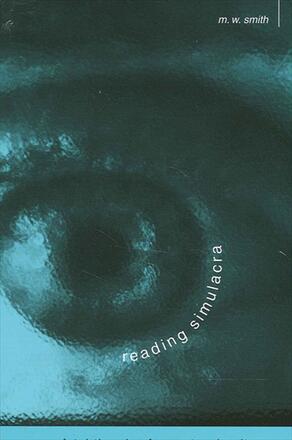
Reading Simulacra
Fatal Theories for Postmodernity
Alternative formats available from:
Traces the ways in which our culture has increasingly become a culture of simulations, and offers strategies for discerning meaning in a world where the difference between what is real and what is simulated has collapsed.
Description
Reading Simulacra analyzes the ways in which our culture has become fatally immersed in simulation. Television, the Internet, virtual reality, and other advancements in technology and information processing have brought about an order in which simulations and digital images permeate our experiences of the world so deeply that their distinctions from reality appear seamless. Through a careful study of some of the most important postmodern theorists, particularly Jean Baudrillard and Deleuze and Guattari, this book puts forth two different communication strategies—"seduction" and "rupture"—for a world where the difference between what is real and what is simulated has disappeared. In an attempt to discern meaning from this contemporary situation, M. W. Smith examines a range of contemporary texts that have, in the past, resisted traditional analysis. These include the O. J. Simpson trial, Oliver Stone's Natural Born Killers, Reese Williams's A Pair of Eyes, Kathy Acker's Blood and Guts in High School and Don Quixote, Clarence Major's My Amputations, and Baudrillard's America—all of which represent the obscenity of hypersignified existence.
M. W. Smith is Associate Professor of English at Bluefield State College.
Reviews
"M. W. Smith examines one of the central features of postmodern life—the increasingly simulated experience, or simulacrum. Faced with the immersion of the real into the hyperreal, Smith attempts to develop a 'bifocal method' of reading postmodern texts, which he believes is necessary in order to survive the postmodern scene. " — symplokē
"The book offers a succinct, if often terrifying, glimpse into a world increasingly governed by nearly instantaneous telecommunicative feedback and the seductive lure of mass-mediated simulacra. It addresses important cultural-political concerns, theorists, and literary works at the core of contemporary debates about the meaning of human experience. " — Stephen Pfohl, author of Images of Deviance and Social Control: A Sociological History
"The question of theorizing postmodern culture in terms of simulation and seduction is at the cutting edge of contemporary debates in cultural studies and related disciplines. This book should appeal to those inside and outside the academy who are interested in the shape of contemporary culture and ways of understanding and working through the mechanisms of hyperreal simulation. " — Steven Shaviro, author of Doom Patrols: A Theoretical Fiction about Postmodernism